I always knew I was different. I was always told so. My name is O’Neal Leon Wyche, Jr., and I’m a Champion Against Bullying.
I grew up in a small town in South Georgia where everyone knew each other and their secrets. I was fortunate to have a loving mother and supportive stepfather, a safe home and food to eat. I had clean clothes on my back everyday, but they weren’t the right clothes. On picture day in the 2nd grade, my mother outfitted me in a dress shirt, trousers and a tie.
As I walked into the school, the majority of the other kids were dressed in regular casual clothing —T-shirts, jeans, sneakers. This wasn’t the first picture day that I’d worn dressier clothing to school, but it was the first time I’d notice the unusual stares from kids in the hallways. As soon as I stepped into my class, a few of my classmates, particularly three boys, burst out laughing. They’d made fun of me before, and today was no different.
“Nice tie, O’Neal,” James said, barely able to contain his laughter. “You’re so corny!”
His words punched me in the gut, and I was terrified. That terror and feeling unsafe through teasing, taunting followed me for the next nine years of my life—though this was only the prelude for things to come. James would mock me and say mean things in class and at recess. In retrospect, I understand it now, but when you’re seven years old you don’t really understand why someone is being so mean to you.
 As a child of Jehovah’s Witnesses growing up in the South, I didn’t know that having more feminine mannerisms and my religious beliefs would be the reason why I was bullied. But as I grew up, I was reminded of these differences constantly. As we went through each grade, James, John and Derrick bullying increased and got more intense. His aggression toward me led other students to tease me too, at his daring.
As a child of Jehovah’s Witnesses growing up in the South, I didn’t know that having more feminine mannerisms and my religious beliefs would be the reason why I was bullied. But as I grew up, I was reminded of these differences constantly. As we went through each grade, James, John and Derrick bullying increased and got more intense. His aggression toward me led other students to tease me too, at his daring.
One particular day in Physical Education, he convinced a girl who would often get sent to the principal’s office for causing havoc in class to pick on me. She cornered me in the back of the gym and kept pushing me saying,
“What you gonna do? I dare you to push me back.”
While this was happening James and his friends were laughing in the background. None of the other students did anything, and I was afraid that if I did push her back we would both get in trouble—something I always feared as a kid. She then proceeded to grab my neck and choked me up against the wall. All the while, she was laughing and saying, “Do something.” Eventually the coach saw what was happening and broke up the huddle, but I knew that I lost. And this would only make the way I was treated worse now that a girl had humiliated me.
The environment at school became so bad that I would consistently return home crying, and I woke up in the morning not wanting to face another day of name-calling, hurt feelings or a possible ambush by other kids. I decided to share the details of what was happening at school with my mother. She told me that she understood, that these things happened all the time. She encouraged me to be strong and not let their words get to me—as hard as it was to internalize. My mother always told me that I was a very intuitive kid, which was a blessing and a curse. And while I knew her advice came from a good place, I could predict the results of her counsel. And as much as I tried to swallow my pain, when James and the other students would bully me, I couldn’t contain my shame.
My grandmother was a paraprofessional at my elementary school, so I began confiding in her. This was one of the smartest things I did—to a point. My grandmother spoke with my teacher and principal, and collectively they all began noticing each interaction I had with other students. And while this minimized the bullying in the class, it continued outside of the classroom.
When I was in the 4th grade, the teasing from the same group of boys became verbal. I would hear outbursts in class:
“Why are your clothes so tight?”
“You act like a girl.”
“Look at the way you hold your hand and walk.”
“You’re a sissy.”
“I saw you knocking on doors with those Jehovah’s Witnesses.”
 I was a very timid and soft-spoken little boy: the kid that sat in the front of the class with his homework completed. I never wanted to get in trouble, so I never said anything back to the bullies. My sister Rosalyn, however, was the complete opposite. She has always been a strong outspoken person that didn’t care what anyone had to say about her. We’re 11 months apart in age, and we always went to the same school together. I always knew she was just down the hall in class, and I would see her at lunch or at recess. I began telling Rosalyn about the boys that were teasing me. “No, O’Neal,” she said to me after I told her what they’d been saying to me. “Nobody is going to treat you like that.” And she fearlessly approached them the next day after school.
I was a very timid and soft-spoken little boy: the kid that sat in the front of the class with his homework completed. I never wanted to get in trouble, so I never said anything back to the bullies. My sister Rosalyn, however, was the complete opposite. She has always been a strong outspoken person that didn’t care what anyone had to say about her. We’re 11 months apart in age, and we always went to the same school together. I always knew she was just down the hall in class, and I would see her at lunch or at recess. I began telling Rosalyn about the boys that were teasing me. “No, O’Neal,” she said to me after I told her what they’d been saying to me. “Nobody is going to treat you like that.” And she fearlessly approached them the next day after school.
While waiting to be picked up by our grandmother next to the big oak tree in front of the school, one of the boys came over teasing and pushing me around. Immediately, my sister grabbed him by the neck and pushed him up against the tree.
She tackled him to the ground as she screamed out, “Don’t bother my brother again!”
At that moment one of the teachers on outside duty saw what was happening and ran over to us to break up the fight. My grandmother also arrived and yelled out of the car window, “Rosalyn! Get off that boy and get in the car!” Although I was happy about what she did, it only made things worse. Her teacher scorned her the next day, and was sent home with a citation. Worse, I had allowed Rosalyn to fight my battles and had become more of a coward in the bullies’ eyes. The teasing continued to escalate.
As years went by, the bullying continued until it became my normal. As a freshman in high school, I realized that regardless of what my mother, grandmother or sister did, I was alone and I had to handle it by myself.
The first thing I had to do was question why these things were happening. I wanted to understand what the boys bullying me did. Through their eyes I started to analyze the way I walked, spoke and dressed. I realized the way I walked was lighter than the football players headed into the locker room. The way I talked was softer than the other boys who raised their hands in class. The way I dressed was more precise, too, like I was trying to express something. I saw what they did, suddenly, and it frightened me. This was the time when I was supposed to be a man, chase after girls, assert my strengths and rise up like the other boys. But the path, for me, was not as clear.
Even at home I was afraid to communicate this fear. Surely my mother, a religious, God-fearing woman would have taken my worries as reason to fear what kind of man I was. Maybe she’d even question my sexuality. The act of telling my family would have transformed the long-standing bullying into a conversation my family was not ready to have. So, just as my mother had told me, I kept it all inside: a secret from everyone including my sister. I was not only confused and hurt, but afraid of what would happen.
Things began to turn around, however, once I realized I was not alone.
During that year, one weekend in 1999, I watched a film called Cruel Intentions, which involved two vicious, wealthy siblings at an elite Manhattan prep school making a horrible wager to seduce a fellow student without falling in love. The brother, Sebastian, was a stylish, young guy that had everything and could have any girl he wanted, except for Annette, the object of the bet. Of course, he ultimately falls in love with her and changes his way—but it’s too late. And while some might write “Cruel Intentions” off as just another 90’s teen movie, Sebastian inspired me in two incredible ways: by finally identifying the root of his participation in bullying, and seeing someone change to embrace what they feel in their heart. His bullying came from insecurity just as strong as my own. And when he embraced connection with another person over how he was perceived by others, he showed his true capacity for love. He was an authentic human being with his emotions and also the way in which he expressed himself, which ultimately changed the way I thought about myself. I realized that if it came from a place of truth and expression, I could be whoever I wanted, wear what I wanted and do what makes me happy. And I saw the kids who bullied me as being just as insecure as I was and able to change.
With this new resolve, I immediately began the transformation process in stepping into my true authenticity.
I stopped dressing to fit in and started wearing clothing that I felt comfortable to me. Surprisingly, they happened to be dressier clothing—the clothing that had precipitated the bullying. The first day of junior year, I walked up to the high school in my new threads and a new attitude. I was confident waiting with all the other students for the bell to ring. I knew that I would get uncomfortable stares and teasing. I was a bit nervous, but I refused to falter. For the first time in my life, I truly embraced my uniqueness, not letting my worries get in the way of my liberation.
It was the first time I felt alive and my true self.
This realization also shifted my focus to my future—which included experimenting with new clothing and personal style, creating art, being the only guy that actually enjoyed sitting in Home Economics. I even started a school dance crew that went on to win 1st place in a local talent show. I chose to change what was happening to me by embracing myself and putting my desires before anything else. I ignored the bullying and it eventually became silent noise.
 As I learned more about individuals who are bullied and why students bully other students, I learned that those young boys were facing a terrible home life and were bullied by their parents and older siblings. Yearning for life’s necessities such as a safe, clean home. All things I was blessed with. I understand now and hope nothing but the best for them. This experience has truly helped mold me into the man I am today.
As I learned more about individuals who are bullied and why students bully other students, I learned that those young boys were facing a terrible home life and were bullied by their parents and older siblings. Yearning for life’s necessities such as a safe, clean home. All things I was blessed with. I understand now and hope nothing but the best for them. This experience has truly helped mold me into the man I am today.
Special thanks to Shane Lukas, Stephen Jordan and Noah Ballard for the push and help with bringing this story into fruition.

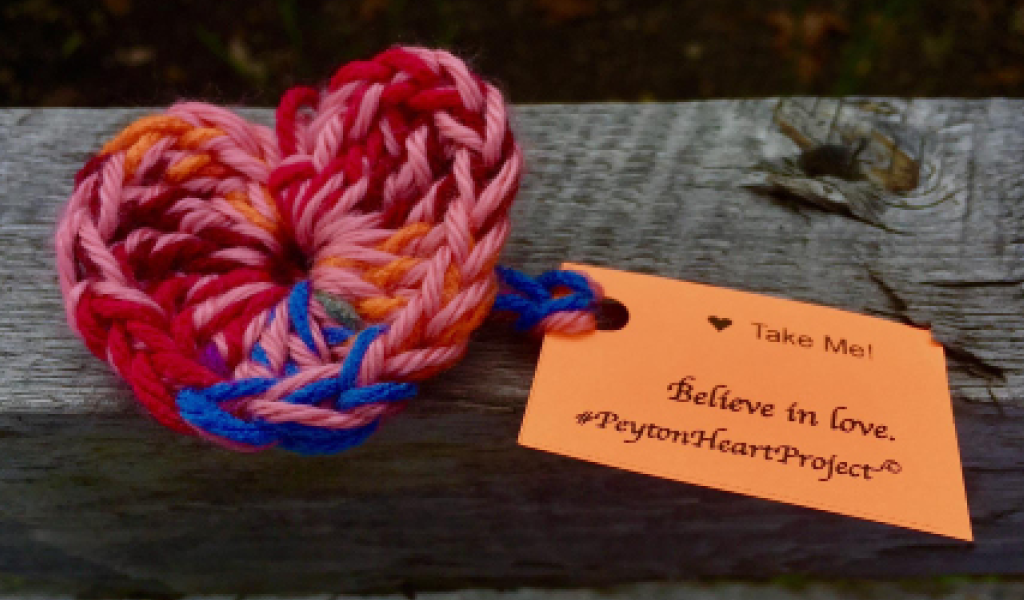
 I reached out to his parents and requested their permission to name my project in honor of Peyton. They agreed and now Peyton’s father, David James, helps me run the
I reached out to his parents and requested their permission to name my project in honor of Peyton. They agreed and now Peyton’s father, David James, helps me run the  Many people have been impacted by suicide and by mental health issues either through their friends or through their family members. Many people have been able to identify with what the Peyton Heart Project is doing and that is what is making this project resonate with people in over 50 countries around the world. In fact, several people have messaged us and told us that they happened to find a heart on a day when they were contemplating suicide. They said that they saw the heart as a sign that they needed to live another day and they thanked us for giving them hope. Hearing that kind of story from those who have found our hearts inspires me to continue trying to reach people with our hearts.
Many people have been impacted by suicide and by mental health issues either through their friends or through their family members. Many people have been able to identify with what the Peyton Heart Project is doing and that is what is making this project resonate with people in over 50 countries around the world. In fact, several people have messaged us and told us that they happened to find a heart on a day when they were contemplating suicide. They said that they saw the heart as a sign that they needed to live another day and they thanked us for giving them hope. Hearing that kind of story from those who have found our hearts inspires me to continue trying to reach people with our hearts. I hope the Peyton Heart Project inspires others to join us in our mission of kindness because the world could always benefit from a little more love.
I hope the Peyton Heart Project inspires others to join us in our mission of kindness because the world could always benefit from a little more love. 















































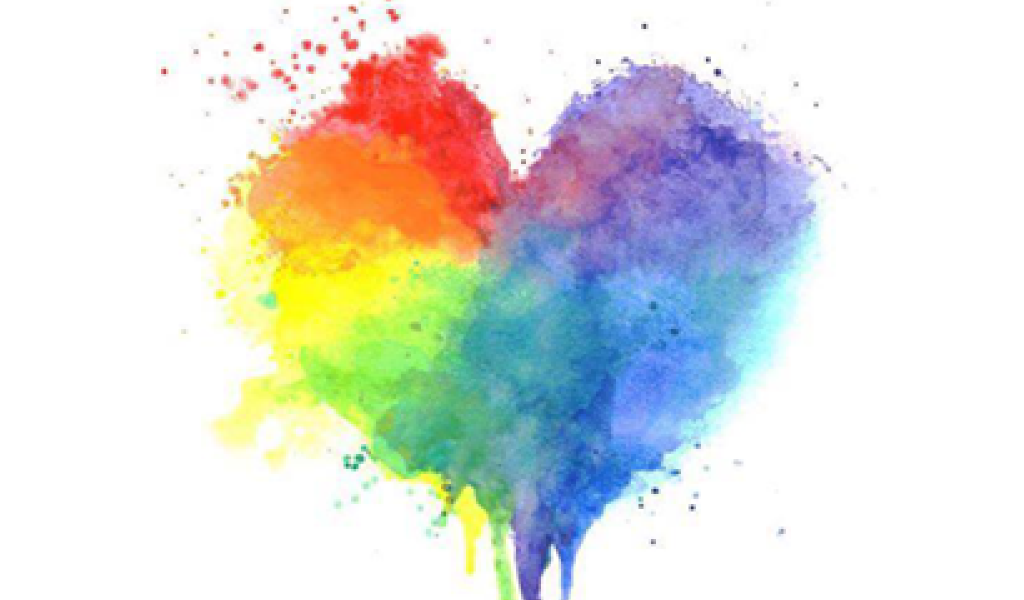
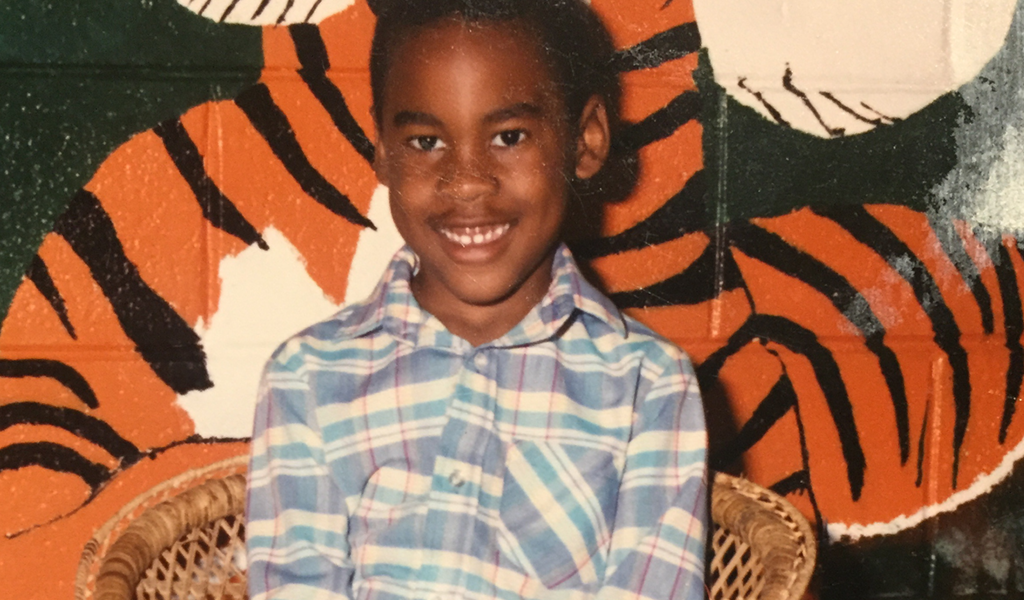
 As a child of Jehovah’s Witnesses growing up in the South, I didn’t know that having more feminine mannerisms and my religious beliefs would be the reason why I was bullied. But as I grew up, I was reminded of these differences constantly. As we went through each grade, James, John and Derrick bullying increased and got more intense. His aggression toward me led other students to tease me too, at his daring.
As a child of Jehovah’s Witnesses growing up in the South, I didn’t know that having more feminine mannerisms and my religious beliefs would be the reason why I was bullied. But as I grew up, I was reminded of these differences constantly. As we went through each grade, James, John and Derrick bullying increased and got more intense. His aggression toward me led other students to tease me too, at his daring. I was a very timid and soft-spoken little boy: the kid that sat in the front of the class with his homework completed. I never wanted to get in trouble, so I never said anything back to the bullies. My sister Rosalyn, however, was the complete opposite. She has always been a strong outspoken person that didn’t care what anyone had to say about her. We’re 11 months apart in age, and we always went to the same school together. I always knew she was just down the hall in class, and I would see her at lunch or at recess. I began telling Rosalyn about the boys that were teasing me. “No, O’Neal,” she said to me after I told her what they’d been saying to me. “Nobody is going to treat you like that.” And she fearlessly approached them the next day after school.
I was a very timid and soft-spoken little boy: the kid that sat in the front of the class with his homework completed. I never wanted to get in trouble, so I never said anything back to the bullies. My sister Rosalyn, however, was the complete opposite. She has always been a strong outspoken person that didn’t care what anyone had to say about her. We’re 11 months apart in age, and we always went to the same school together. I always knew she was just down the hall in class, and I would see her at lunch or at recess. I began telling Rosalyn about the boys that were teasing me. “No, O’Neal,” she said to me after I told her what they’d been saying to me. “Nobody is going to treat you like that.” And she fearlessly approached them the next day after school.  As I learned more about individuals who are bullied and why students bully other students, I learned that those young boys were facing a terrible home life and were bullied by their parents and older siblings. Yearning for life’s necessities such as a safe, clean home. All things I was blessed with. I understand now and hope nothing but the best for them. This experience has truly helped mold me into the man I am today.
As I learned more about individuals who are bullied and why students bully other students, I learned that those young boys were facing a terrible home life and were bullied by their parents and older siblings. Yearning for life’s necessities such as a safe, clean home. All things I was blessed with. I understand now and hope nothing but the best for them. This experience has truly helped mold me into the man I am today.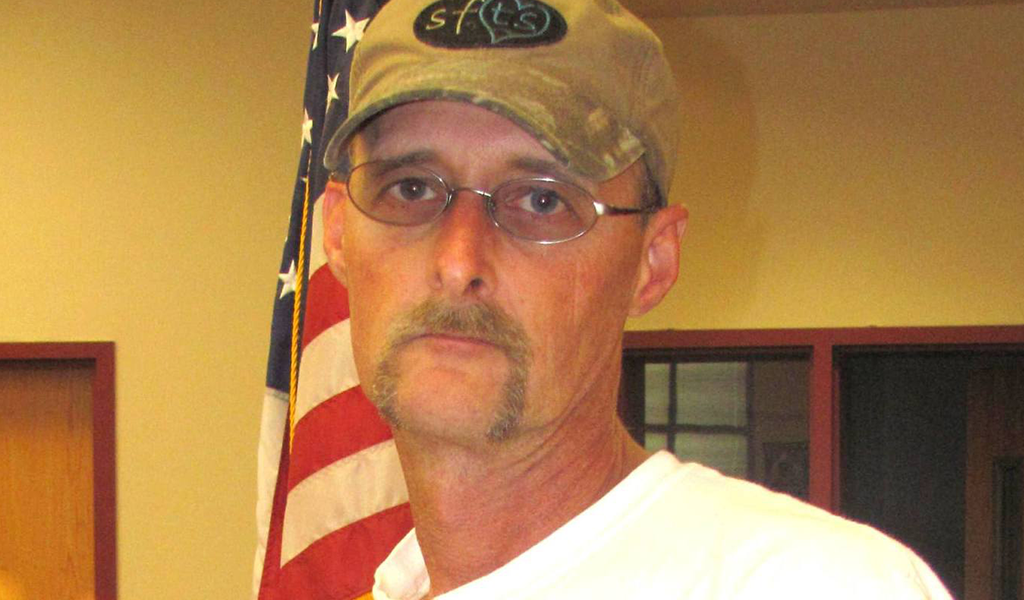
 How do you think the community can help if someone is being bullied?
How do you think the community can help if someone is being bullied?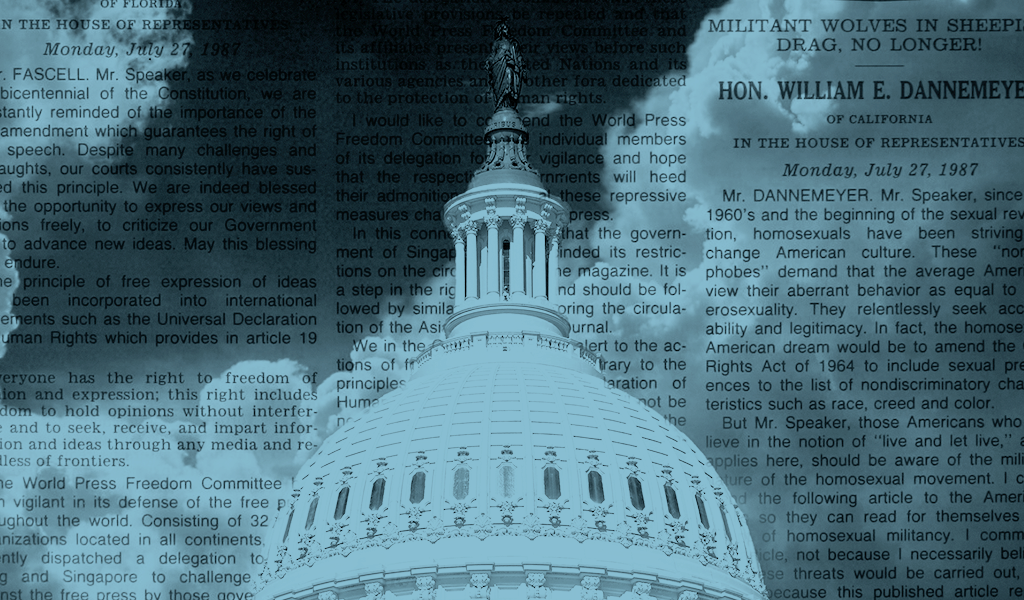
 Creating narratives is no doubt an important tool in American politics. Some narratives are founded in reality while others are fictionalized. As an artist and writer, one of my most cherished pursuits is truth. It may seem ironic that a writer like me utilizes fiction to pursue truth, but the difference between my narrative and Dannemeyer’s is that my fiction is used to help share the beauty of reality.
Creating narratives is no doubt an important tool in American politics. Some narratives are founded in reality while others are fictionalized. As an artist and writer, one of my most cherished pursuits is truth. It may seem ironic that a writer like me utilizes fiction to pursue truth, but the difference between my narrative and Dannemeyer’s is that my fiction is used to help share the beauty of reality. 53% of the more than 1400 registered voters questioned said “yes” when asked if they “believe the polarizing language being used in this presidential election is spilling over to young people and creating more meanness.”
53% of the more than 1400 registered voters questioned said “yes” when asked if they “believe the polarizing language being used in this presidential election is spilling over to young people and creating more meanness.” Chris Reza is a writer, Broadway musician (Fun Home), and a proud supporter of the Tyler Clement Foundation. For more information, visit
Chris Reza is a writer, Broadway musician (Fun Home), and a proud supporter of the Tyler Clement Foundation. For more information, visit 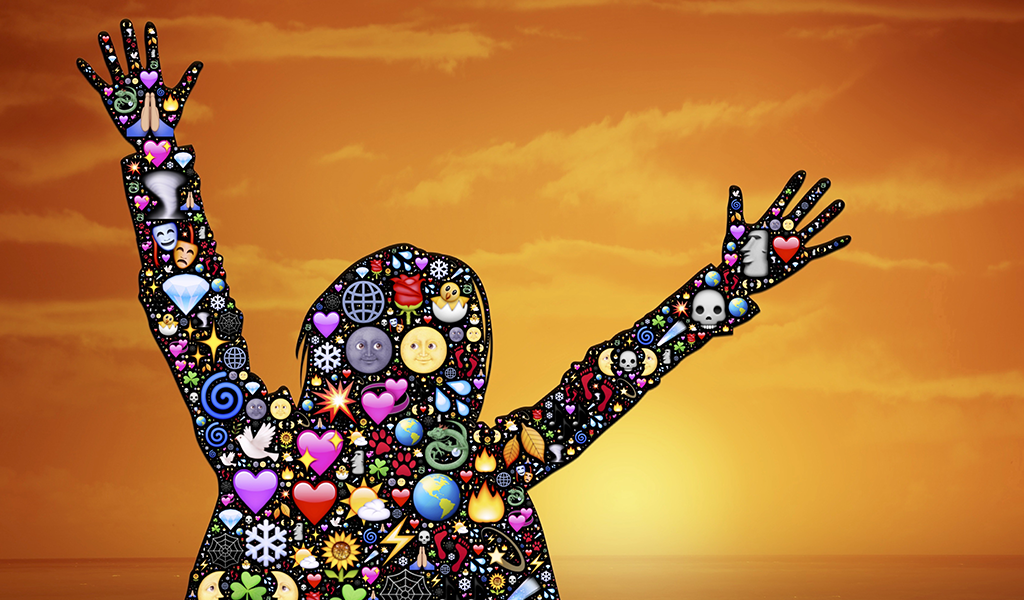
 Helping others is an excellent way to make this world a better place while increasing the positive energy in your life. You can take a stand against bullying by being an Upstander with the Tyler Clementi Foundation.
Helping others is an excellent way to make this world a better place while increasing the positive energy in your life. You can take a stand against bullying by being an Upstander with the Tyler Clementi Foundation.